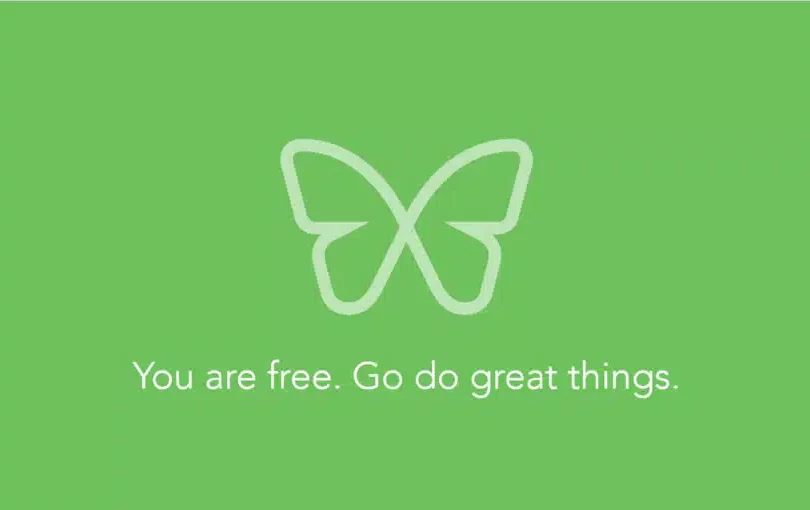Alex Soojung-Kim Pang on his new book, “Shorter”

With his new book Shorter: Work Better, Smarter, and Less—Here’s How hot off the press this week, Alex Soojung-Kim Pang generously sat down with us to answer some questions about the book. We’re big fans of Alex, and his brilliant Rest: Why You Get More Done When You Work Less was on our reading list in 2017. Alex previously shared some sage words about rest and morning routines here on Freedom Matters.
Alex, thank you for your very interesting book, Shorter. It will speak to many of us who realize that there is a lot of time wasted conforming to the norm of 40 hour work weeks. But as your book details, there’s social and organizational inertia to overcome when changing styles of work.
First, could you give us an overview of how the landscape of work, as you detail in Shorter, is changing?
As we all know, work has become increasingly fragmented, unstable, unsustainable, and unsatisfying. Mobile devices and the internet were supposed to let us more efficiently manage work across geographies and throughout the day, but instead they’ve thrown us into a purgatory of being always-on, never fully engaged with work but never fully able to disconnect from it. For many of us, careers and stable jobs have been replaced with gigs and perpetual hustle, reinforced by a culture that glamorizes overwork and encourages us to be passionate about our work. Working hours and pressures have grown, while opportunities for genuine detachment and rest have been eroded. All this has led to a world in which work-related stresses, depression, and chronic illnesses are as big a public health problem as smoking.
The good news is that a growing number of people are recognizing that this has to change– and that it can change, for the better. Professionals from lawyers and doctors to mechanics and chefs are talking about the high cost of overwork, the cost of toxic cultures on the sustainability of the profession, and looking for ways to become more humane without sacrificing standards. They also intuit that new technologies have made certain kinds of work far more productive, but those gains are buried under a rubble of outmoded thinking, old practices, and bad leadership. To paraphrase William Gibson, the 4-day week is already here: we just need to uncover it.
A big part of making a shift toward a shorter workweek is getting buy-in from stakeholders – both management and workers. While we might assume that workers will naturally welcome a shorter week, you’ve shown the transition isn’t always smooth. What are some things you can do to make the transition to a shorter week more successful?
The impetus for a shorter workweek has to come from the top. It challenges too many conventions and cultural norms, and requires space for rapid prototyping, experimentation, and learning from failure. Leaders are the only ones who can mount those challenges and create that space. But the real work of redesigning the workday involves everyone.
Empowering people, and giving them time to work through what could go wrong, what contingencies they need to put into place, and how to respond to emergencies, is the best way to guarantee that the transition goes well, and to give people the time to get comfortable with the shorter workweek, confident about their prospects, and excited to try it.
It’s also helpful to run a trial first– usually 90 days is enough to figure out how to make it work, measure the results, and decide if the company wants to continue. This serves two purposes. It reassures everyone that if it doesn’t work– if revenues fall, for example– the company can go back to familiar ways of working. And it underlines that this is an experiment, not an expense, and had to succeed to become permanent.
A number of Freedom users are professionals – freelancers, contractors, consultants – who manage their own schedules. How can the lessons of Shorter be applied to these individuals?
Most of the companies that adopt 4-day weeks or 6-hour days are small enterprises, and there are none smaller than solo professionals! They have the same opportunity to redesign their workdays, because no matter your size, all professional firms are dealing with the cult of overwork, the spectre of burnout, the need to manage distractions and time. (Indeed, they’re even more important so solve if you’re a solo operator: there’s no one to take up the slack if you burn out!)
As a result, you can use the same methods that bigger companies use to figure out how to do 5 day’s work in 4: the fundamental challenges, questions, and measures are the same.
Along those lines, what tools or social practices are most useful for guiding successful adoption of a shorter, or more flexible workweek?
The most basic things knowledge-intensive companies do are 1) ruthlessly shorten meetings, 2) reduce technology distractions, and 3) redesign the workday to carve out hours-long periods of undistracted focus time. Studies show that in office environments we lose an average of 2-4 hours of productive time per day to meetings, interruptions, and multitasking. So just getting those under control will take you a long way to being able to work a 4-day week.
The most basic things knowledge-intensive companies do are 1) ruthlessly shorten meetings, 2) reduce technology distractions, and 3) redesign the workday to carve out hours-long periods of undistracted focus time.
Speaking of tools – the digital tools that make work more “flexible” make it easier for us to connect and “do a little work” – how should organizations manage the balance between being always available and enforcing shorter, more focused workweeks?
By using those tools differently. The modern workplace is a carnival of distraction, thanks in no small part of the fact that we’ve confused the technological capacity to be always-on and always-connected with the actual need to be always-on and always-connected.
In reality, unless you’re an ER doctor on call, a criminal lawyer with a client on death row, or an EMT, you probably don’t need to be checking your email at the dinner table In fact, one of the things that the companies I write about in SHORTER teach us is that having stronger boundaries between work time and personal time, between professional life and home life, between being online and offline, is good. It forces companies to work better; gives people more and better time off; and allows them to more fully recharge and work harder.
As a practical matter, this mainly means establishing and enforcing cultural norms that discourage or forbid non-emergency after-hours email, backed up by some tools that help nudge people’s behavior or insulate them from poorly-behaved colleagues.
And how do you prevent individuals and organizations from backsliding into the “more is more” model of work?
Of course, there’s always the temptation to take on more projects, to make hay while the sun shines, and to put a little more away against emergencies (especially these days). But at many of the companies I’ve studied, a cultural change helps prevent backsliding: they go from assuming that “more is better” and “long hours are good,” to emphasizing high levels of efficiency and productivity. As more than one founder told me, after they’ve moved to a 4-day workweek, they’re no longer impressed by people who can work 12 hours a day; they want people who can do the same work in 6 hours.
Indeed, when you shift your own and your company’s mindset away from “how do we do more and work longer?” to “how do we work more effectively?” you’re more likely to think in terms of moving to a 25-hour week, or a 3.5-day workweek. Lengthening the workweek wouldn’t be cool. Shortening it would be cool.
…shift your own and your company’s mindset away from “how do we do more and work longer?” to “how do we work more effectively?”
The other thing that acts as a backstop against longer hours is that people come to really appreciate them, and over time you’re likely to attract high-quality, experienced people who’ve done their share of youthful late nights but now have lots of knowledge, a child or two, and no interest in going back to those bad old days.
Thank you, Alex!

Alex Soojung-Kim Pang is the author of Shorter: Work Better, Smarter, and Less—Here’s How released March 10, 2020. His previous books include Rest: Why You Get More Done When You Work Less and The Distraction Addiction. Alex is the founder of the Restful Company, a Silicon Valley consultancy.
If you missed his previous guest post about how digital distraction is impacting your ability to rest, you can read it here! Or, to learn more about Alex and his work, visit his website at www.deliberate.rest.


